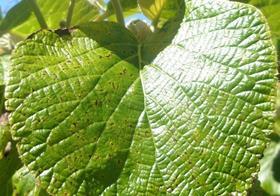
The Chilean Kiwifruit Committee has started analysing kiwifruit orchards in an effort to detect the spread of the bacterial disease Pseudomonas syringae pv Actinidiae (Psa), according to a report by SimFRUIT.
The move follows Chile’s Agriculture and Livestock Service (SAG) discovery of Psa in two of the country’s central regions, which was reported on SAG's website.
Committee general manager Carlos Cruzat told SimFRUIT that the most important step is to roll out a detection programme in order to evaluate 50 per cent of the national territory planted with kiwifruit.
Despite specialists presuming the presence of the bacteria to be less severe than in Italy and New Zealand (because of Chile’s climate conditions), Mr Cruzat assured that the Committee is focused on doing everything possible.
The “localised” discovery was made at one property in the O’Higgins region and three sites in the Maule region, after SAG stepped up inspections following Psa detections in Italy and New Zealand last year.
SAG said it is drawing up a contingency plan to control the disease, while also continuing to conduct inspections to understand the actual spread of Psa in the country.
The discovery was made following surveys conducted by public and private sector specialists on orchards with suspicious symptoms in December 2010 and January this year.



